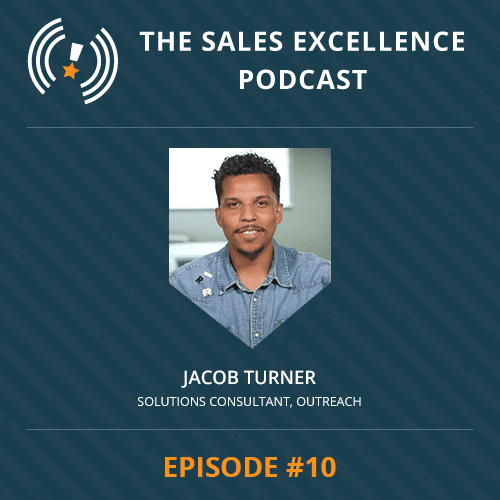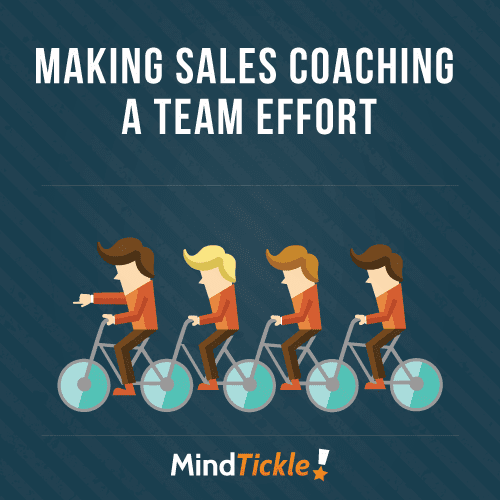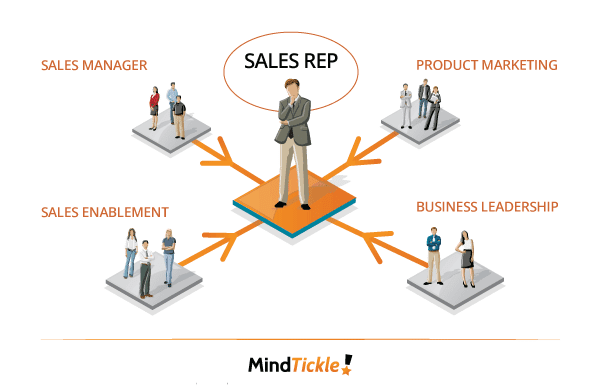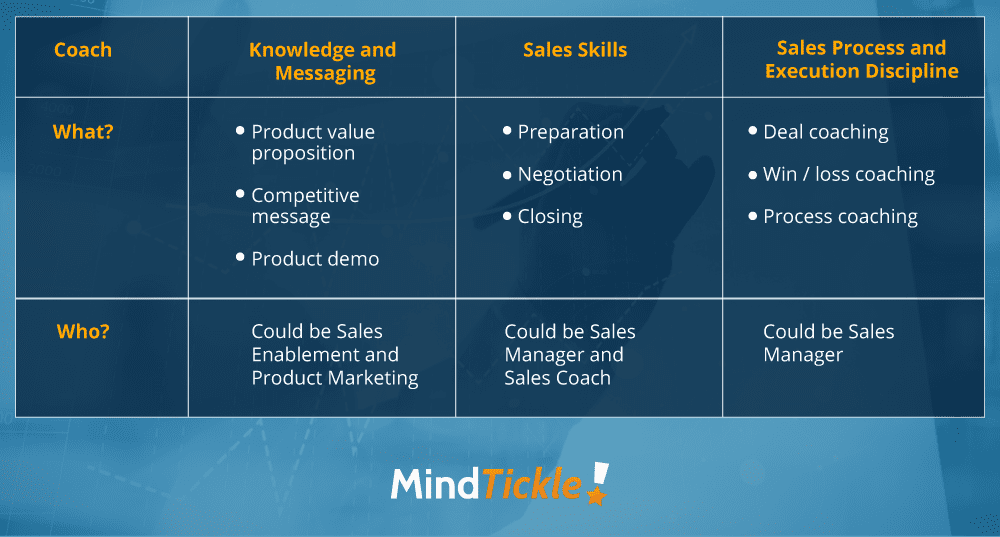The Formula for Effective Sales Coaching that Enables Reps and Managers
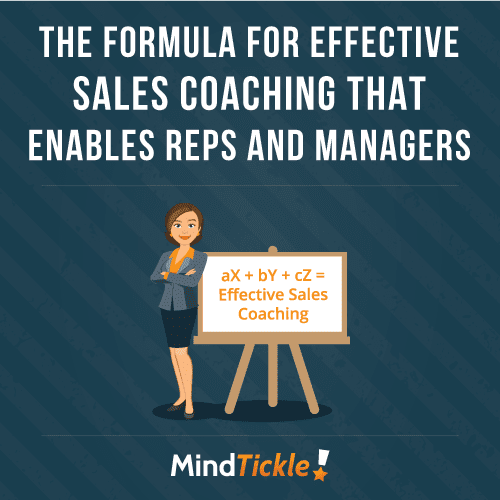

What is the problem?
Industry dynamics are changing too quickly and competition is fierce, it’s no longer an option to leave coaching up to chance.
Research by the Sales Executive Council
found that coaching the middle 60% can improve performance by up to 19%, and even if you coach those below average to above average you can improve the performance of 50% of your sales force by six to eight percent.
Also, there are so many types of managers and salespeople. Each manager has their own style and sales reps have their own individual needs. Ensuring there is a culture of coaching accountability and sales coaching process ensures managers coach reps on the most important area.
Key to coaching success
The key to effective coaching is to provide specific tools, identify gaps and enable remediation workflow that is readily accessible to both managers and reps every day. By supporting this framework with a process that maps each coaching needs to a subject matter expert will make the stakeholders’ accountable.
It’s no longer enough to coach in one-on-one meetings just a few times a year. Companies are now agile and reps and their managers need to be too. Reps need constant development to help them sell better. They need to be coached on a variety of things. Here are some examples:
- Identifying what stage their buyers are in;
- Understanding their sales funnel and how to prioritize prospects;
- Learning how to tailor value messages to buyers;
- Preparing for that big meeting;
- Navigating who their champion is;
- Trying to find the right angle to close the deal;
- Understanding how to maximize the opportunity in their territory; and
- Analyzing a lost deal.
This has to be done in real-time, not just when it’s scheduled into the diary.
Coaching from a manager’s perspective
A coaching framework needs to have enough flexibility to accommodate different managerial styles and the individual needs of sales reps. Managers shouldn’t be left to try and figure it out on their own. In fact, managers may not always be the best people to coach on some things at all. Sales Enablement and Product Marketing may be better equipped to coach reps on product demos while managers are best left to coach on the finer points of specific deals.
That’s why best-in-class sales organizations are moving towards an outcome-oriented approach, where different leaders and subject matter experts (SME) collaborate to make coaching successful.
This structure works best when the responsibilities of each stakeholder are clear and their expectations are aligned. We’ve found a framework that encompasses the needs of most sales organizations:
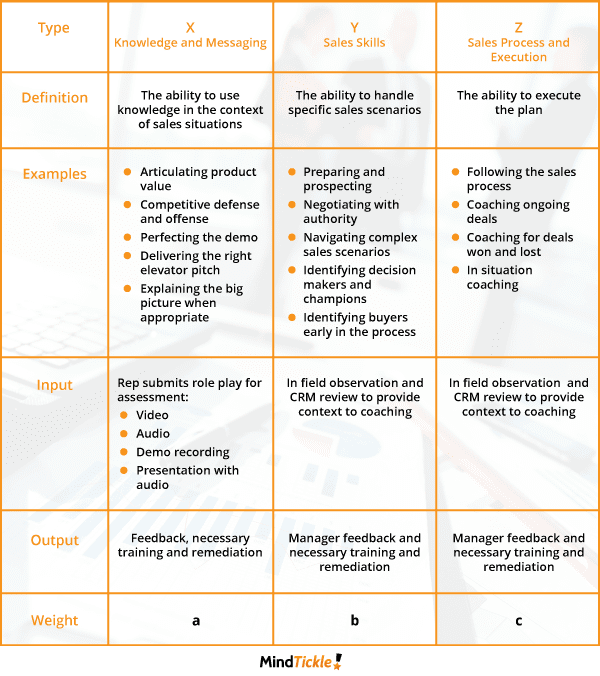

I call this the aX + bY + cZ formula for effective sales coaching.


Depending on the complexity of sale, a, b and c will change the priority of what a rep requires coaching on. For example, FMCG retail sales Sales Process and Execution Discipline (Z) will have the highest priority so c will be high, with b and a being a smaller percentage. For sellers of complex technology software Knowledge and Messaging (X) and Sales Skills (Y) may have a higher priority, so a and b will be a much higher percentage than c. SDR sales may place more weight on Sales Skills, giving b the highest weight.
The trick to the perfect coaching formula is that it’s tailored for your business. Your magic formula will take into account the specific intricacies of your industry, product and prospects, along with the needs of your reps and managers to create your own aX + bY + cZ.



